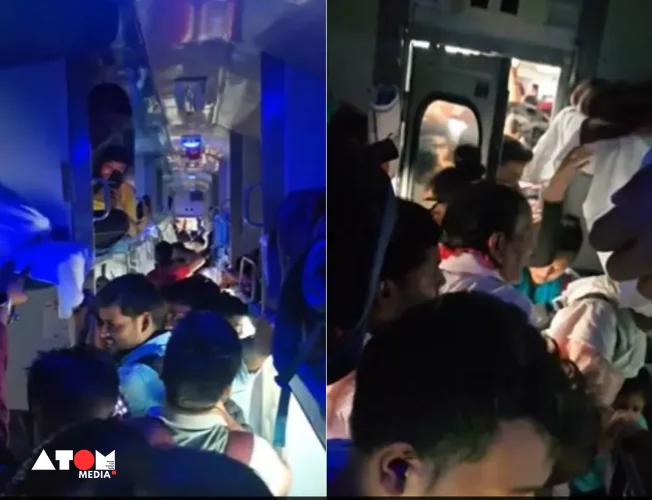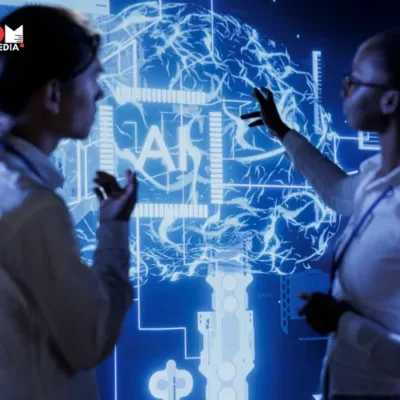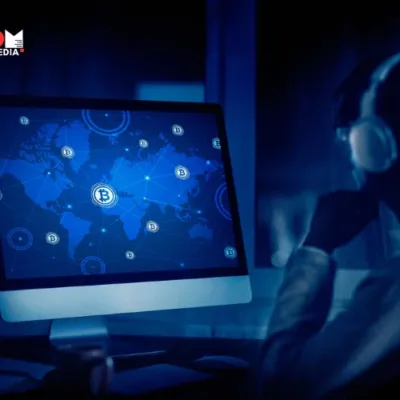Social media has become a battleground for highlighting a growing concern in India – ticketless passengers occupying reserved coaches on trains. These incidents not only cause inconvenience and frustration for passengers who have rightfully booked their seats, but also raise questions about the effectiveness of current measures to prevent ticketless travel.
Viral Videos Expose the Issue
In May 2024, a video shared by a passenger named Vijay Kumar on a popular social media platform (X) went viral. The footage captured the chaotic scene inside a 3AC coach of the Brahmaputra Express at Patna Junction. The train compartment, meant for a limited number of passengers with confirmed reservations, looked more like a crowded marketplace overflowing with unauthorized passengers. Mr. Kumar’s experience was far from unique. He recounted the ordeal of himself and his family struggling to board the train and access their reserved seats. “The AC-3 coach has been taken over by general passengers. No one cares for any rule,” he expressed his frustration in the video. The overflowing aisles and lack of space for ticketed passengers painted a grim picture of the situation.
Serious Concerns Regarding Passenger Experience and Safety
These viral videos serve as a stark reminder of the challenges faced by passengers who pay for reservations on Indian trains. Ticketless travel disrupts the entire ticketing system, creating a sense of unfairness and frustration for those who have followed the proper procedures. Overcrowding due to unauthorized passengers not only diminishes the comfort of the journey but can also pose safety hazards. Limited space restricts movement within the coach, potentially hindering emergency exits in case of unforeseen circumstances.
The Ineffectiveness of Current Measures
The prevalence of ticketless passengers on trains raises questions about the effectiveness of existing measures to curb the issue. The Indian Railways implements various strategies to deter ticketless travel, including:
- Ticket Checking by Staff: Travelling Ticket Examiners (TTEs) are deployed to conduct surprise checks and identify ticketless passengers on trains.
- Fines and Penalties: Passengers caught travelling without tickets are subject to hefty fines and potential prosecution.
- Flying Squads: Surprise inspections by special flying squads are conducted at railway stations to prevent ticketless travel before passengers board the trains.
- Technological Solutions: The Indian Railways have also implemented technological solutions like Automatic Ticket Vending Machines (ATVMs) and online booking systems to streamline the ticketing process and reduce the scope for manipulation.
The Path Forward: A Multi-pronged Approach
Addressing the issue of ticketless travel on Indian trains requires a multi-pronged approach that tackles the root causes and strengthens existing measures. Here are some key considerations. Raising public awareness through targeted campaigns can educate potential travelers about the proper ticketing procedures and the consequences of ticketless travel. Addressing the socio-economic factors that might lead to ticketless travel, such as providing affordable ticketing options or alternative modes of transportation for short distances, could be crucial. Strengthening enforcement mechanisms by deploying sufficient TTEs and flying squads, along with stricter penalties for ticketless travel, can act as a deterrent. Leveraging technology further can play a significant role. Utilizing handheld scanners for efficient ticket verification, implementing robust online booking systems, and exploring cashless transactions at railway stations can streamline the process and minimize loopholes. Encouraging passengers to report instances of ticketless travel and cooperate with railway authorities can create a more vigilant travel environment.
Ensuring a Safe and Equitable Travel Experience
Ticketless travel on Indian trains is a complex issue with multifaceted causes. By acknowledging the problem, raising public awareness, implementing stricter enforcement measures, and leveraging technology solutions, Indian Railways can work towards creating a safe and equitable travel experience for all passengers. A collaborative effort involving the Railways, passengers, and relevant authorities is essential to ensure that reserved seats remain accessible to those who have rightfully booked them.
Read more: Marketing News, Advertising News, PR and Finance News, Digital News





